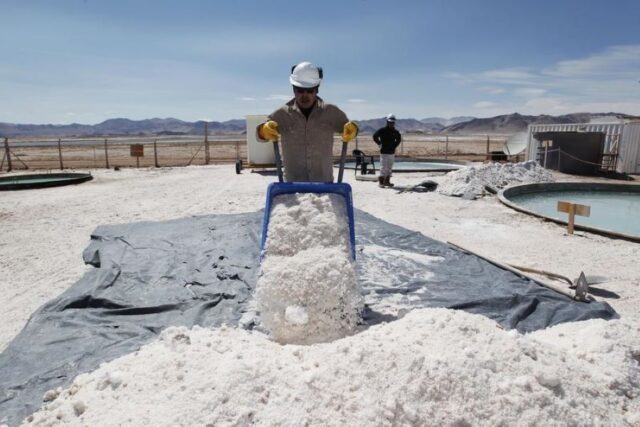…As global demand for battery metals continues to grow, the upcoming Critical Minerals Africa summit will showcase Africa’s latest lithium development projects in Zimbabwe, Mozambique, Rwanda and more
…Lithium is an essential element for the energy transition, as it’s used in a variety of applications including batteries for electric vehicles and energy storage systems
…Zimbabwe is home to the world’s largest known deposits of lithium and is estimated to have the highest number of lithium projects under exploration in Africa
FRI AUG 30 2024-theGBJournal| Earlier this year, market research firm Benchmark Mineral Intelligence forecast Africa’s lithium production to triple year-on-year in 2024, increasing the continent’s share of global output from 4% to over 10%.
The rise can be attributed to a surge in financing from China, which is responsible for 90% of Africa’s planned lithium supply through 2030.
Africa’s position within the global lithium market will be a key talking point of this year’s Critical Minerals Africa summit – taking place in Cape Town on November 6-7 – where a dedicated Minerals Showcase: Lithium session will explore the continent’s future role in the energy transition as a major producer of the critical mineral.
Lithium is an essential element for the energy transition, as it’s used in a variety of applications including batteries for electric vehicles and energy storage systems.
Zimbabwe is home to the world’s largest known deposits of lithium and is estimated to have the highest number of lithium projects under exploration in Africa. In April 2024, Chinese mining company Rwizi Rukuru commissioned a 300-ton-per-day lithium concentrator in Mutoko – the third lithium processing plant located in the country’s Mashonaland East province.
With investment flowing across the country’s mining value chain, Zimbabwe is estimated to meet upwards of 20% of global demand if its full potential is unlocked.
Meanwhile, newly-formed joint venture (JV) Deccan Gold Mozambique LDA announced in May 2024 that it will conduct lithium exploration activities in Mozambique’s Alto Ligonha Pegmatite Belt.
The company will establish a 100-ton-per-day lithium processing facility, leveraging a $10-million capital injection from JV partner Deccan over the next three years. Lithium produced from the Mozambican concessions will be exported to India to meet growing demand for critical minerals crucial for the energy transition.
Also in the East African region, mining exploration company Aterian recently announced plans to start drilling at the HCK lithium project in southern Rwanda by September 2024. Positive results indicate the presence of lithium-bearing minerals at the mining project, and the company is now advancing with preparatory work and the drill planning stage.
In Mali, Chinese lithium producer Ganfeng Lithium finalized an agreement worth more than $342 million in May 2024 to acquire a 40% stake in the Mali Lithium Project from Australian mining firm Leo Lithium. The deal will enable Ganfeng Lithium to buy the entire output from phase one of the 506,000-ton-per-year project.
In the same month, exploration and development company Atlantic Lithium disclosed promising drilling outcomes at its Ewoyaa project in Ghana, highlighting the growth potential of existing lithium resources, which currently stand at 35.3 million tons.
In addition to Africa’s raw lithium prospects, several countries are exploring opportunities for local value addition. Earlier this month, Zimbabwean mining company Kivumba Mining House signed a $310-million deal to construct a 3 million-ton-per-year lithium processing plant at the Sandawana mine in Mberengwa.
The facility is expected to be operational within 18 months and will initially produce 600,000 tons of lithium concentrate annually, falling under the country’s efforts to ban the export of unprocessed raw lithium.
A similar move by Tanzania was announced last year, as the country aims to maximize value addition across its critical mineral industry through the development of downstream infrastructure. The government has outlined an export license process, stating that mining companies are required to establish in-country refining facilities alongside their respective operations.
PS/This year’s edition of CMA takes place under the theme Innovate, Enact, Invest in African Critical Minerals to Sustain Global Growth, connecting African mining projects and regulators with global investors and stakeholders to untap the full potential of the continent’s raw materials. Sponsors, exhibitors and delegates can learn more by contacting sales@energycapitalpower.com.
Written by Energy Capital & Power
X-@theGBJournal|Facebook-the Government and Business Journal|email:gbj@govbusinessjournal.com|govandbusinessj@gmail.com










